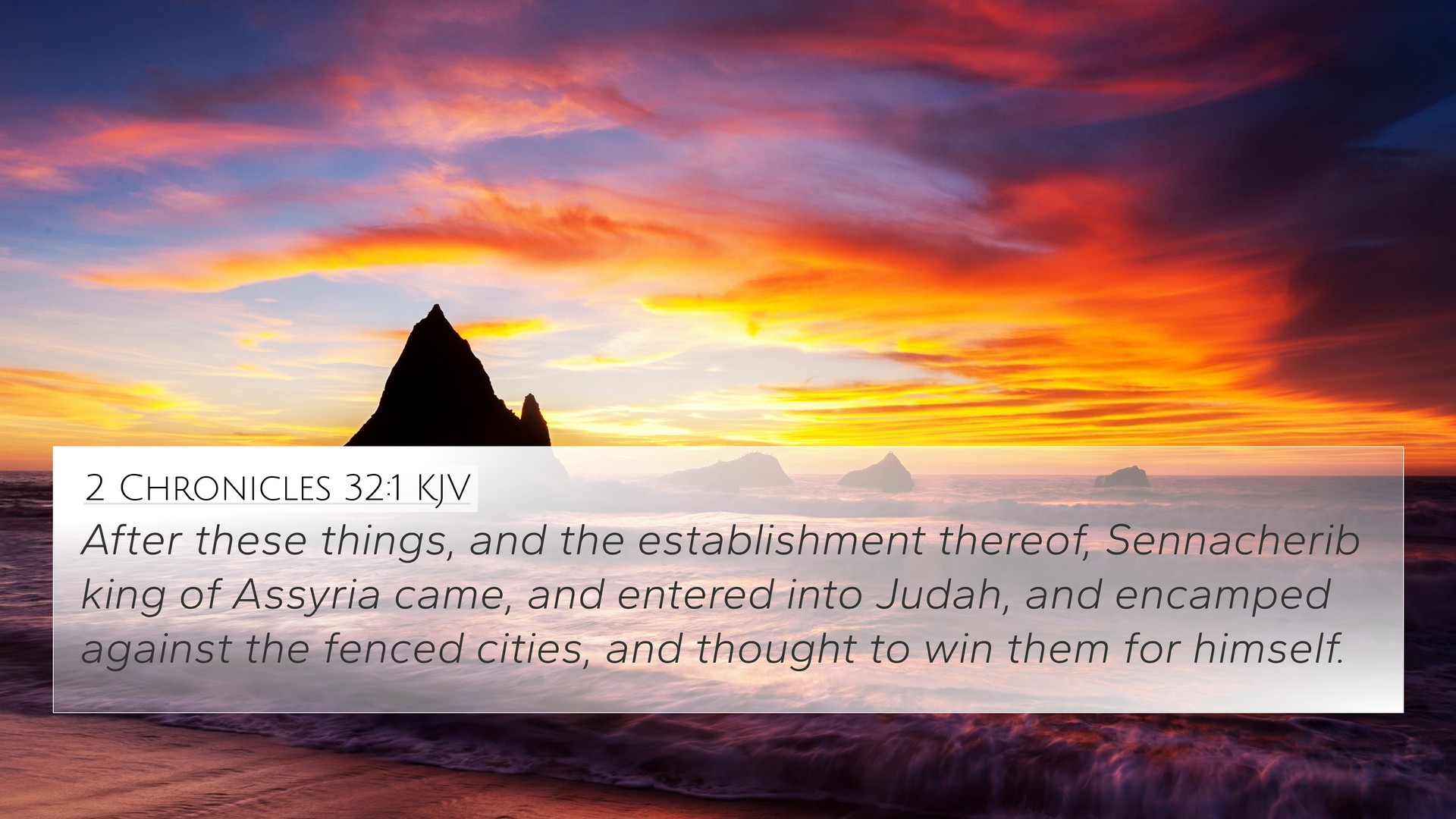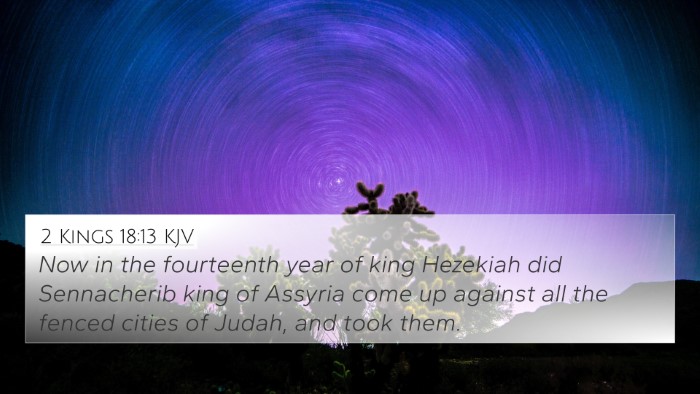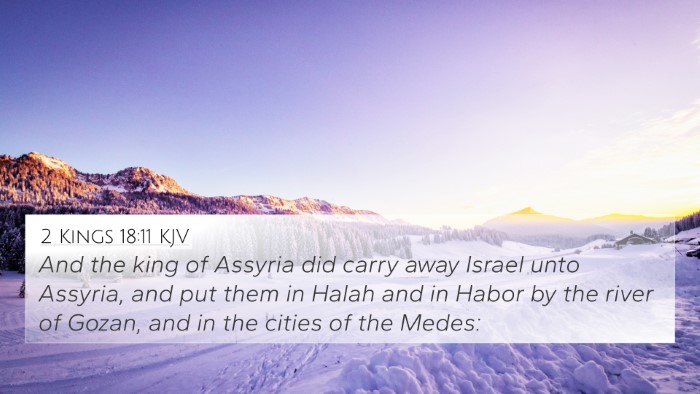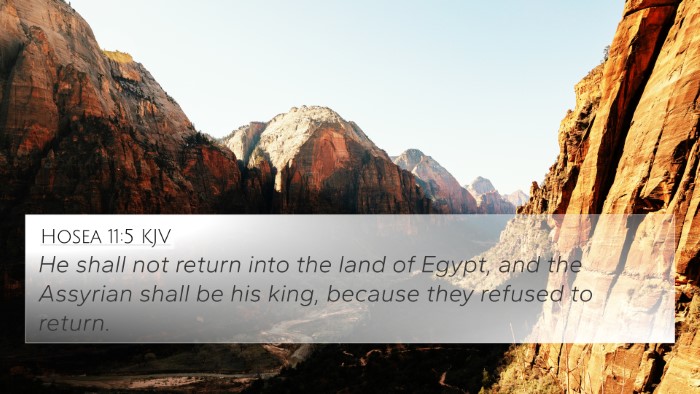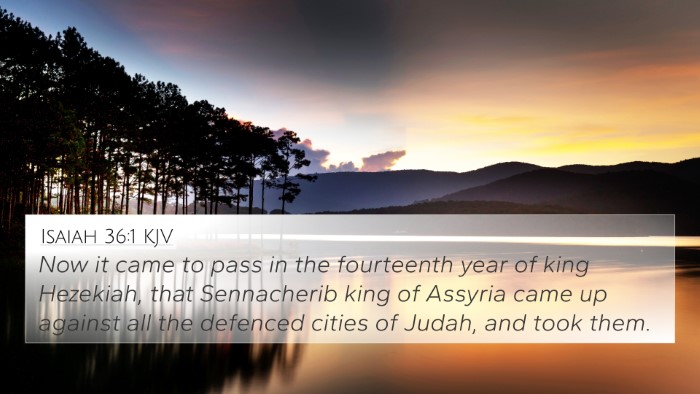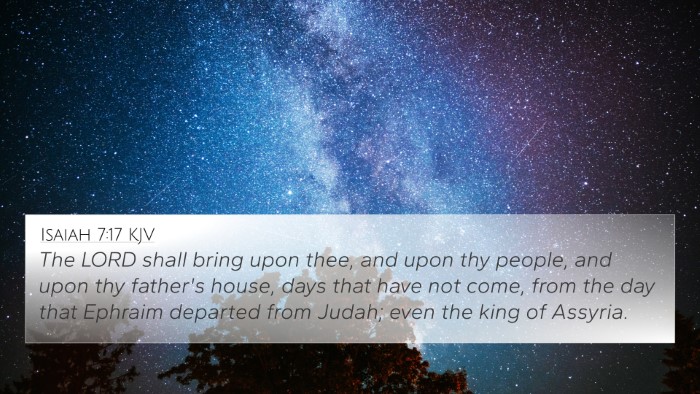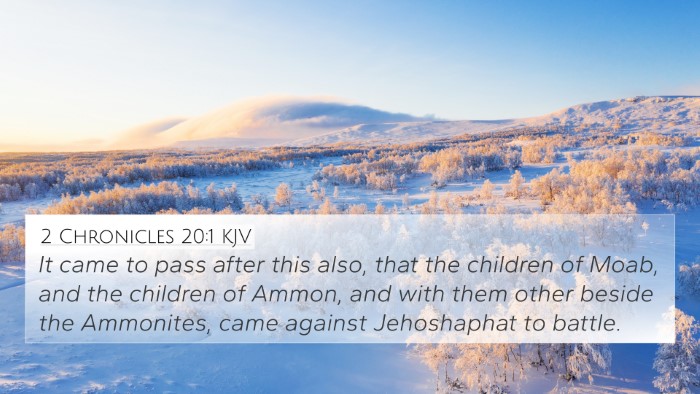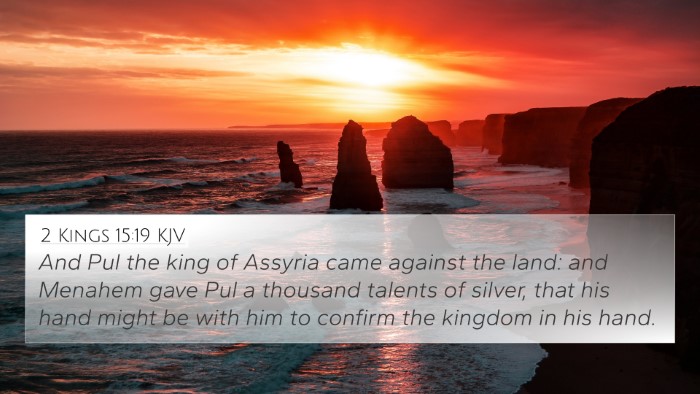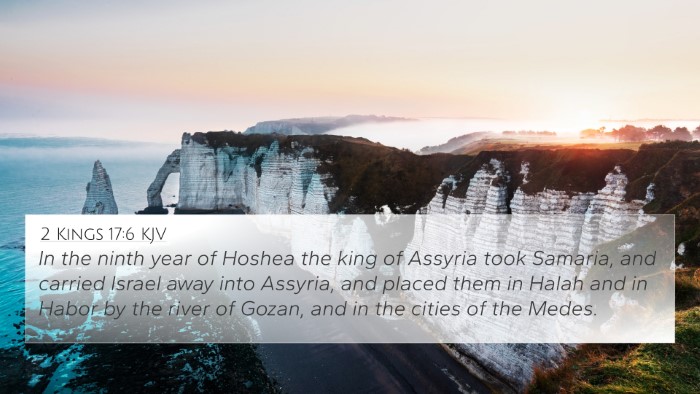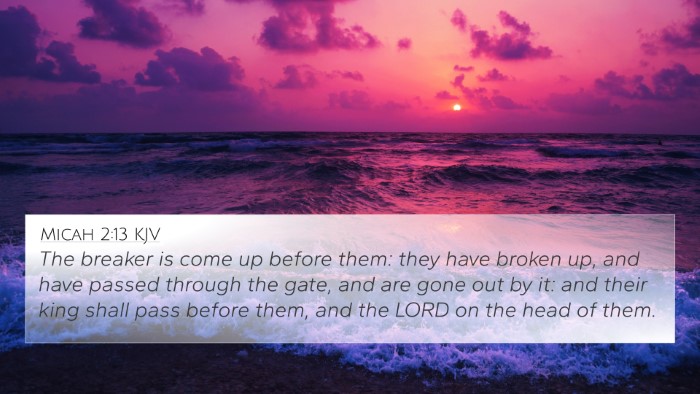Understanding 2 Chronicles 32:1
2 Chronicles 32:1 presents a significant moment in the life of King Hezekiah, showcasing his response to impending danger from the Assyrian king Sennacherib. This verse reads:
"After these deeds of faithfulness, Sennacherib king of Assyria came and entered Judah; he encamped against the fortified cities, thinking to win them over to himself."
Context and Meaning
This chapter introduces a critical period during Hezekiah's reign, following a time of spiritual revival and reforms. The phrase "after these deeds of faithfulness" emphasizes the success and obedience of Hezekiah in reinstating proper worship in Israel.
In-depth Commentary Insights
- Matthew Henry's Commentary: Henry highlights Hezekiah's previous reforms and how this led to God's favor. However, he notes the danger of complacency in faithful times, as even the most faithful can face trials.
- Albert Barnes' Notes: Barnes outlines the context of Sennacherib's invasion, stressing the Assyrians' reputation for ruthlessness. He suggests that Hezekiah's faith was now going to be tested in the face of formidable odds.
- Adam Clarke's Commentary: Clarke discusses Hezekiah's leadership qualities and how his initial successes in turning Judah back to God were soon overshadowed by external threats, stressing the importance of continual reliance on God.
Thematic Connections
This verse is not only about Hezekiah’s reign but also reflects broader themes of faith, resilience, and God's intervention in times of crisis. The mention of Sennacherib evokes a comparison with other key figures of opposition against God's people.
Related Bible Cross-References
Here are several relevant Bible verses that relate both thematically and contextually to 2 Chronicles 32:1:
- 2 Kings 18:13-16 - Details the same Assyrian invasion with additional context about Hezekiah’s preparations.
- Isaiah 36:1-3 - Marks the parallel account of Sennacherib’s siege, providing insight into the diplomatic encounters.
- Psalm 46:1-3 - A reflection on God as a refuge, resonating with Hezekiah's reliance on God's protection amid turmoil.
- 2 Chronicles 30:12 - Highlights the revival and spiritual alignment of Judah before the crisis, setting the stage for Hezekiah's dependence on God's faithfulness.
- Ezra 8:21-23 - Emphasizes prayer and fasting for Divine support, parallel to Hezekiah’s actions during the threat.
- Isaiah 37:6-7 - Chronicles the prophecy delivered to Hezekiah regarding the defeat of Sennacherib, showing the outcome of his faith.
- 1 Peter 5:8-9 - A New Testament application about vigilance against adversaries, mirroring Hezekiah’s experience of spiritual warfare.
Comparative Bible Verse Analysis
By analyzing this verse in light of its biblical context, one can see the connections between the Old Testament narrative and New Testament principles of faith under persecution. For example, the faith Hezekiah exhibited showcases a God's provision that aligns with teachings in the New Testament, where believers are encouraged to stand firm in their faith despite adversities.
Cross-Referencing Biblical Texts
Utilizing tools for Bible cross-referencing can help in exploring deeper connections and thematic explorations throughout Scripture. The act of cross-referencing not only enhances understanding but also introduces believers to a broader narrative of God’s intervention throughout biblical history.
Applying the Lessons of 2 Chronicles 32:1
For modern readers, the implications of this verse lie in its encouragement to maintain faith during challenging times. As seen in Hezekiah's experience, the reality of external threats serves as a reminder of the spiritual dependency on God for strength and guidance.
Conclusion
2 Chronicles 32:1 thus stands as a testament to the faithfulness of God amid trials. Its connections and insights gathered through public domain commentaries offer a rich resource for studying the ways Scripture interlinks, revealing God's consistent character and providential care for His people.
